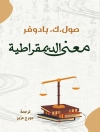Survivors’ narratives are an invaluable source for the study of violence across academic fields. At the same time, they present several difficulties for academic research. Sources may be marked by the effects of trauma, the lasting impact of perpetrators’ political power or blurred lines between reality and fiction. Ethical and legal problems, distances in time between a violent event and the moment of its narration, and the variation in linguistic phrasing chosen by survivors present additional problems. Based on several case studies, the contributors explore typical problems in the study of violence through survivors’ narratives, and possible ways of dealing with them.
O autorze
Doris Reisinger, born in 1983, holds a Ph D in philosophy and a master’s degree in theology. Her research includes work on clergy sexual abuse and spiritual abuse in the catholic church. From 2020 to 2022 she was a project fellow at the Cushwa Center of the University of Notre Dame.
Christof Mandry, born in 1968, is a professor of moral theology and social ethics at the Department of Catholic Theology at Goethe-Universität Frankfurt am Main. He completed his doctorate at Eberhard Karls Universität Tübingen and his habilitation at Universität Erfurt. His research focuses on narrative ethics, hermeneutics of moral experience and social and health ethics.
Sabine Andresen, born in 1966, is a professor of social pedagogy and family studies at the Department of Educational Sciences at Goethe-Universität Frankfurt am Main. She completed her doctorate at Universität Heidelberg, Germany and her habilitation at Universität Zürich, Switzerland. Her research focuses on child sexual abuse, the bearing witness approach, and the impact of transitional justice and inquiries in the context of childhood and youth.










